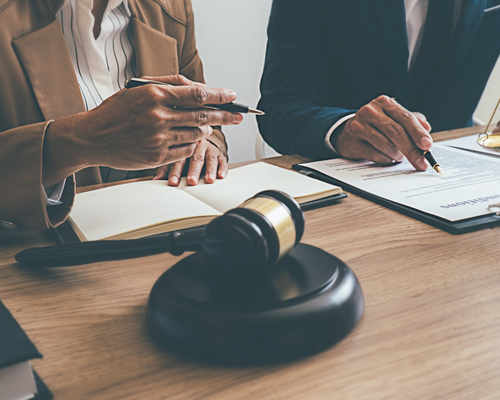Understanding the Deposition Process in a Personal Injury Case
If you’re involved in a personal injury lawsuit in Connecticut, your attorney may mention the possibility of being deposed. While the idea of a deposition can feel overwhelming, it’s a critical part of the discovery phase in building your case. Here’s a breakdown of what a deposition is, what to expect during the process, and how it can impact your claim.
The Purpose of a Deposition
A deposition is a formal, out-of-court interview where attorneys from both sides question a witness under oath. While it may seem like something that could wait until trial, depositions serve several important purposes. First, they allow both legal teams to gather witness testimony and clarify facts before heading to court. This helps them shape their trial strategy based on the information shared during questioning.
Additionally, depositions give attorneys insight into how witnesses may perform under pressure during a trial. For example, if a witness is inconsistent or shows signs of distress during questioning, the opposing attorney can use this information to their advantage. If the witness changes their testimony at trial, the deposition can be referenced to challenge their credibility.
What Happens During a Deposition?
Each deposition is tailored to the case, but the general structure is the same across most personal injury claims.
Setting the Stage
Depositions can take place in a variety of locations—often in a conference room or, increasingly, via remote platforms. The location is typically chosen by the party initiating the deposition, though the opposing party has the right to object. It’s important to be prepared for a potentially lengthy process, as depositions can last for several hours depending on the complexity of the case.
Testimony Under Oath
Before the questioning begins, the witness will be sworn in. This is a critical step because the testimony provided during the deposition is given under oath, just as it would be in court. One side’s attorney will begin by asking questions, and once they’re done, the opposing attorney will have the opportunity to cross-examine the witness. The answers must be spoken aloud so they can be recorded, and any objections by either attorney will be noted for the record, though the witness must still answer.
Who’s in the Room?
A few key individuals will be present during the deposition. These include the attorneys for both sides, the witness, and someone qualified to administer the oath, like a court reporter or notary. In some cases, a stenographer or recording device will also be used to capture the entire proceeding.
Common Deposition Questions
Depositions can cover a wide range of topics, and it’s important to be prepared for any question that might come your way. Typically, the attorney will start with general background questions, such as:
- What is your work and education history?
- Do you have any experience with prior legal proceedings?
- What was your physical condition before the accident?
From there, the attorney will move on to more case-specific questions. In a car accident case, for example, they might ask:
- Where were you located at the time of the accident?
- What were the weather and driving conditions?
- Did you seek medical attention after the incident?
- How has the accident impacted your daily life?
The goal is to gather as much information as possible and clarify any inconsistencies.
Preparing for Your Deposition
If you are the one being deposed, preparation is key. Your attorney will likely meet with you beforehand to review potential questions and offer guidance on how to answer effectively. The most important rule? Keep your answers clear and concise. Only answer the question asked—nothing more. Avoid volunteering extra information that hasn’t been requested.
Here are a few additional tips to keep in mind:
- Take your time: Don’t rush to answer. It’s okay to pause and think before responding.
- Stay calm: The opposing attorney may try to provoke an emotional response. Stay composed and focused.
- Consult your attorney: Give your attorney a brief moment before responding, in case they need to raise an objection.
Why Your Attorney Is Essential During a Deposition
Depositions can be an intense and grueling experience, especially when the opposing counsel is trying to trip you up or catch you off guard. However, having an experienced personal injury attorney on your side makes all the difference. Your attorney will prepare you for the types of questions that may be asked and will guide you throughout the process to ensure you’re protected.
Contact Vining Law for Assistance
At Vining Law, we understand the complexities of the deposition process and the importance of building a strong case for our clients. If you’re involved in a personal injury lawsuit in New Haven or anywhere in Connecticut, our legal team is here to help. We’ll guide you through every step of the deposition process and ensure that your rights are protected.
Have questions? Need legal advice? Contact Vining Law today at (203) 800-7380 for a free consultation. We’re here to support you.
Disclaimer: This blog is for informational purposes only and should not be construed as legal advice. Consult with a qualified attorney for legal guidance specific to your situation.
